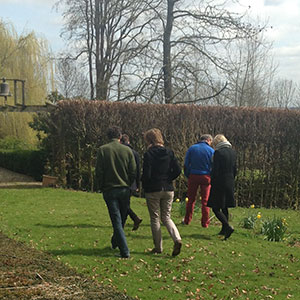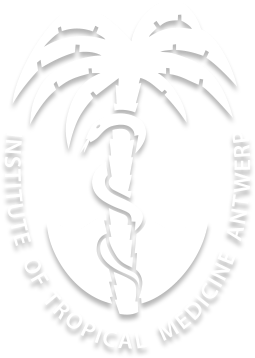

Apart from the many activities described below, the ITM spent considerable time and energy on the development of its plurennial policy plan 2016-2020. The approval of this strategic document by the Flemish Ministry of Education is a prerequisite for the continuation of ITM’s core funding over the next five years. Our main challenge was to translate the ITM 2020+ vision (see 2015.itg.be) into reality. The basic principle, “scientific excellence as a prerequisite for societal relevance”, and its main consequences and implications, were agreed upon in a series of strategic sessions in which a new generation of professors had a major input. Detailed departmental plans eventually came together in an overarching institutional vision that established a new mission statement as well as a set of common ‘Grand Ambitions’ (see below). They will be the touchstone against which vital decisions and choices will be made in the following years.A dear personal souvenir of 2015 is the honouring of Father Damian on 11 February in New York, alongside Prime Minister of Flanders Mr. Geert Bourgeois and Archbishop of New York Mgr. Timothy cardinal Dolan, and many other distinguished guests from Flanders and the US. Especially moving was the presence of the last survivors of Damien’s Molokai leprosy mission in Hawaii. In a keynote address, I had the honour to extend Damien’s pioneering work to the tremendous contribution ‘little Belgium’ has made, and still makes, in tropical medicine and global health. ITM stand ready to uphold this legacy for a long time to come.
Bruno Gryseels
Director
ITM Mission statement
VISION: ITM believes that all world citizens should have be able to enjoy a health live, and that scientific innovation is a motor of societal progress.
MISSION: ITM aims at the advancement and spread of the sciences that contribute to tropical medicine and public health in developing countries, inclusive of their global dimensions.
CORE TASKS: ITM conducts, in these fields and within a coherent academic triad, fundamental, translational and applied scientific research; delivers advanced education and training; and provides medical, scientific and societal expert services.
VALUES: ITM strives in the fulfilment of its mission towards excellence, integrity, specificity and efficiency. It upholds human dignity and diversity, academic creativity and critical sense, solidarity and collaboration, and the well-being of its employees, students, patients and other clients.
ITM’s 15 Grand Ambitions
- Integrate a large part of its public health education and research in a “Global Network of Public Health Schools”, including the long-standing partners in Africa, Asia and South America with which we share the principles of Primary Health Care and Health Care for All.
- Enrich its educational offer with online and blended master- and expert courses, including biomedical and clinical degrees.
- Develop a “Wikitropica” in which it extends and shares its knowledge on tropical diseases with the world wide scientific community.
- Reinforce its interdisciplinary capacity to investigate and fight epidemics of tropical and infectious diseases world-wide, as well as the consequences of ecological, socio-economic and demographic transitions.
- Acquire interdisciplinary capacity to investigate and help controlling world-wide resistance against anti-infectious drugs.
- Develop and deploy innovative control strategies against sleeping sickness that bring into sight the elimination of this disease in Central Africa.
- Research preventive therapy, social dimensions, functional cure and co-infection dynamics as new steps in the clinical management and the global control of HIV/AIDS.
- Develop innovate treatments and diagnostics for multi-resistant tuberculosis.
- Contribute significantly to the world-wide elimination of malaria.
- Acquire innovative insights in the cellular and molecular biology and transmission dynamics of trypanosomes, leishmania, plasmodium, schistosoma, taenia, mycobacteria and arboviruses.
- Develop new diagnostic methods for bacterial blood infections, haemorrhagic viruses, sexually transmitted infections and neglected tropical diseases.
- Develop innovative approaches for the assessment and optimization of complex health interventions.
- Consolidate its position as an international top centre of medical care and clinical research.
- Bring its partnerships in the South fully in a new era “beyond aid”.
- Update and optimise its supporting structures, processes and operations.
